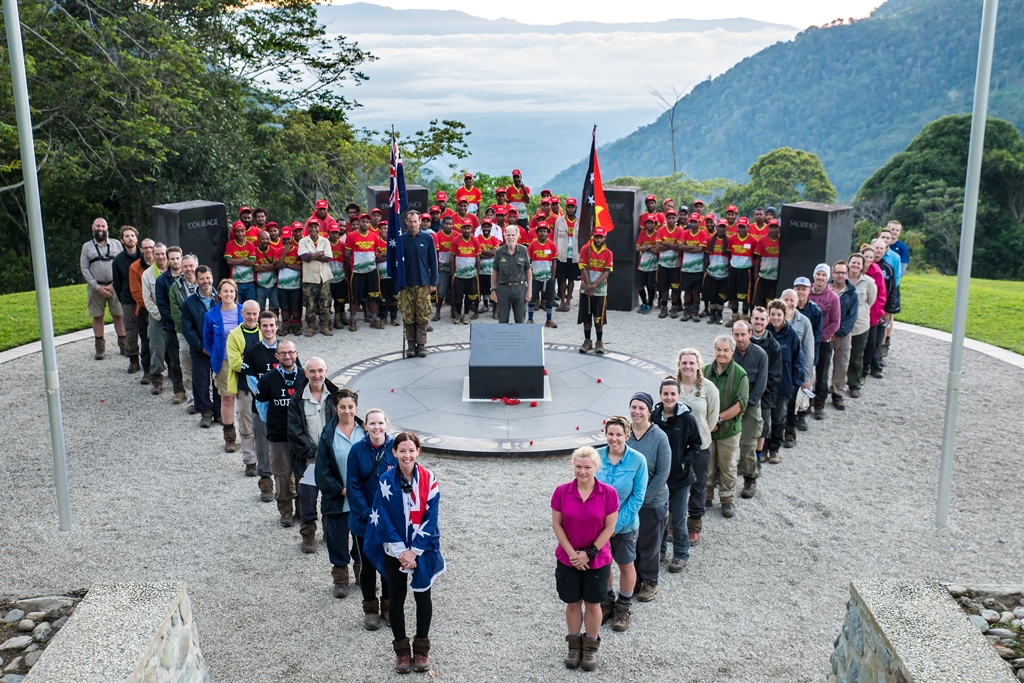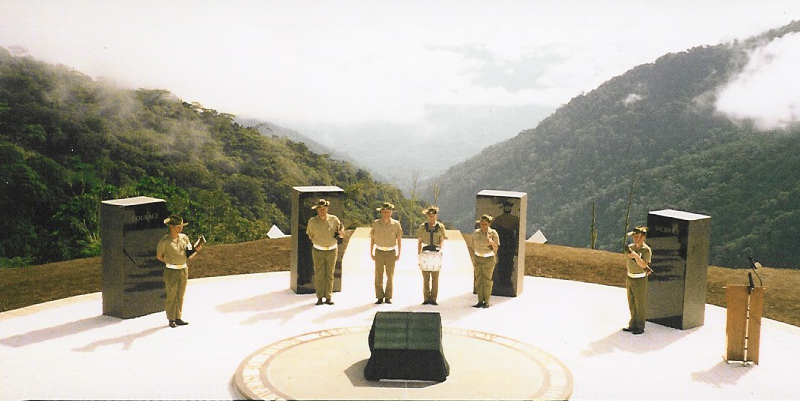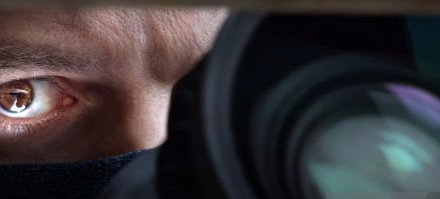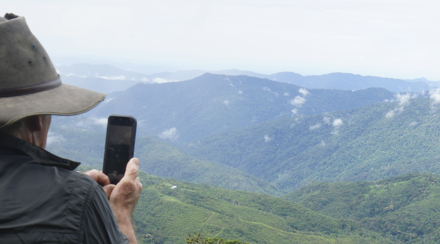65,000 Australians attracted by the military heritage of the Kokoda Trail have invested around PNGK1 billion ($362 million) to trek across it over the past 20 years – they didn’t invest in it to have an ‘environmental levitation’ or a ‘cultural awakening’ – they invested in it to:
- learn about the Kokoda campaign;
- to experience the physical challenges our troops endured; and
- to honour their legacy.
65,000 have been cheated because not a single dollar has been invested in the military heritage of the Kokoda Trail since Canberra took control of it under a Joint Agreement signed in 2008.
65,000 were disappointed to discover that none of the sites relevant to each Phase of War (Advance-Attack-Defence-Withdrawal) between Sogeri and Kokoda have been interpreted to honour the courage, endurance, mateship, and sacrifice of our troops who fought in the campaign.
65,000 were shamed by the fact there is no interpretation of the hardships faced by the PNG wartime carriers, the famous ‘fuzzy-wuzzy angels’, who carried our troops to safety over some of the most formidable terrain on the planet.
65,000 have no idea why a Military Heritage Master Plan has never been developed by an accredited military heritage architect for the Kokoda Trail.
65,000 Australians would be shocked to learn that an American anthropologist without any previous military service or military history credentials was engaged as Australia’s ‘National Military Heritage Advisor’ for PNG on a lucrative 6-figure salary by a DFAT ‘Insiders Club’ in Port Moresby via a recruiting process that could best be described as ‘dodgy’.
65,000 would support the transfer of responsibility for the Kokoda Trail from the Minister for Climate Change, Energy, Environment and Water to the Minister for Veterans Affairs in Canberra;
65,000 were disappointed to discover there are no environmental interpretation signs to identify the seemingly endless variety of flora and fauna anywhere across it.
65,000 were disgusted to discover that not a single hygienic toilet has been installed for them to poop into anywhere across the 138 km Trail.
65,000 are shamed by the fact that none of the village communities have ever been taught how to earn additional income by providing services to meet their needs during their treks.
65,000 wonder where the $8 million they have paid for trek permits has gone as the management authority has not published an Annual Finaccial Report since Canberra took control of it in 2009.
65,000 are shocked to learn that the management authority issues trek permits to illegal Australian tour companies who fail to comply with the Investment Promotion Authority (IPA) Act – they are therefore easily able to avoid their taxation obligatoins in PNG;
65,000 are puzzled by the fact that PNG is the only country in the world to allow its most popular tourism destination to be managed an environment park under the influence of foreign aid-funded officials rather than as a tourism enterprise for the economic benefit of traditional village communities
65,000 are not surprised that trekker numbers have plummeted by 42% because of these management failures by the Canberra funded Kokoda Initiative and their PNG surrogate – the Kokoda Track Authority (KTA);
65,000 are appalled that the fall in trekker numbers has resulted in a cumulative loss of some PNGK 50 million ($18 million) in foregone wages, campsite fees and local purchases from subsistence village communities because of the dramatic fall in trekker numbers.
65,000 would support the urgent transfer of responsibility for the management of pilgrimage tourism across the Kokoda Trail from the Minster for Provincial and Local Level Government to the Minister for Tourism Arts and Culture in Waigani.
65,000 would support the PNG Government using the provisions of their Lands Act to acquire the gazetted area of the Kokoda Trail as a Natioinal Memorial Park.
65,000 would support the potential of the Kokoda Trail to be a world-class pilgrimage tourism destination for the economic benefit of traditional landowner communities.






